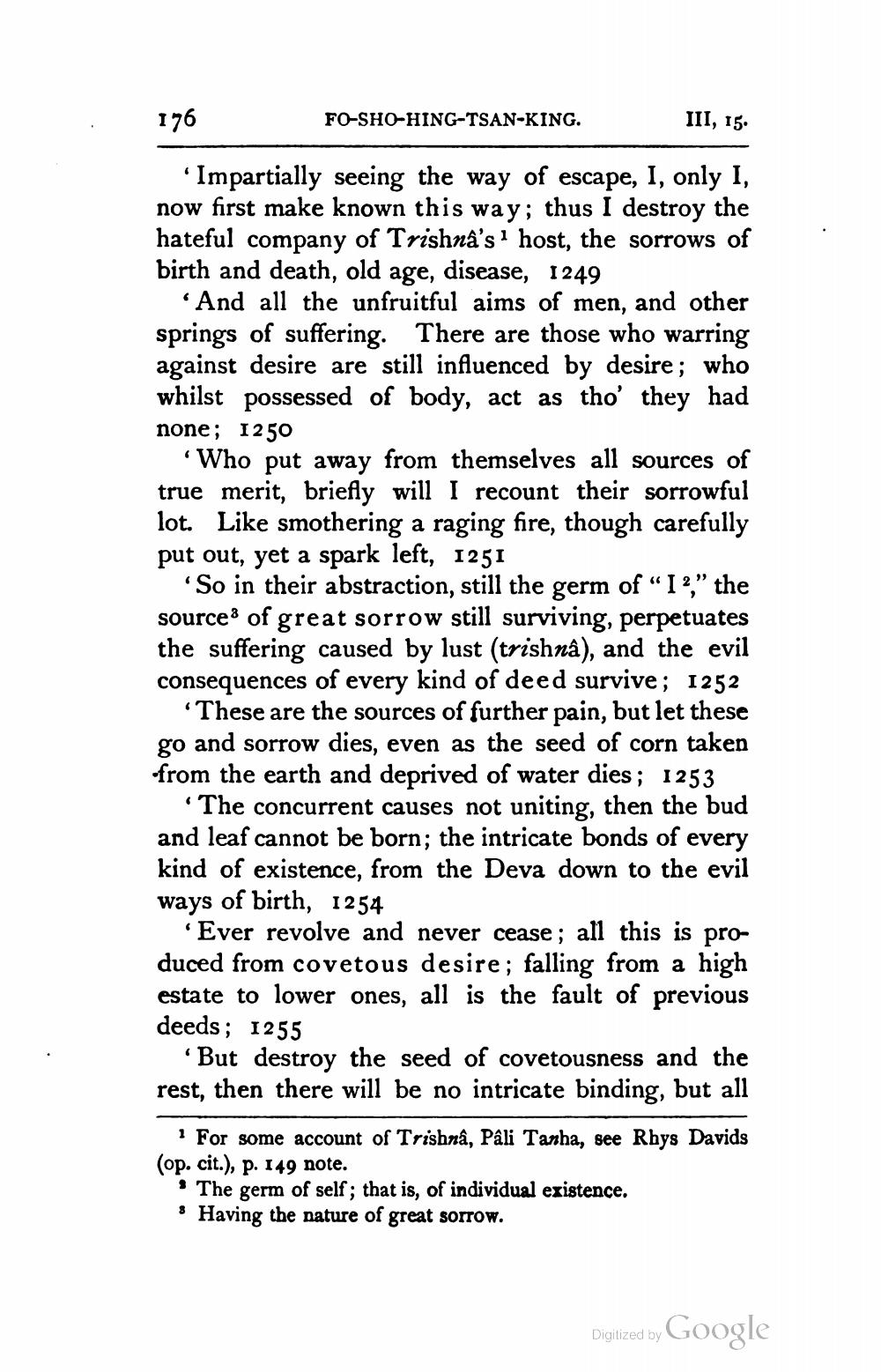________________
176
FO-SHO-HING-TSAN-KING.
III, 15.
Impartially seeing the way of escape, I, only I, now first make known this way; thus I destroy the hateful company of Trishna's ? host, the sorrows of birth and death, old age, disease, 1249
* And all the unfruitful aims of men, and other springs of suffering. There are those who warring against desire are still influenced by desire; who whilst possessed of body, act as tho' they had none; 1250
"Who put away from themselves all sources of true merit, briefly will I recount their sorrowful lot. Like smothering a raging fire, though carefully put out, yet a spark left, 1251
'So in their abstraction, still the germ of “I ?,” the sources of great sorrow still surviving, perpetuates the suffering caused by lust (trishna), and the evil consequences of every kind of deed survive; 1252
*These are the sources of further pain, but let these go and sorrow dies, even as the seed of corn taken •from the earth and deprived of water dies; 1253
•The concurrent causes not uniting, then the bud and leaf cannot be born; the intricate bonds of every kind of existence, from the Deva down to the evil ways of birth, 1254
‘Ever revolve and never cease; all this is produced from covetous desire; falling from a high estate to lower ones, all is the fault of previous deeds; 1255
But destroy the seed of covetousness and the rest, then there will be no intricate binding, but all
For some account of Trishnâ, Pâli Tanha, see Rhys Davids (op. cit.), p. 149 note.
• The germ of self; that is, of individual existence. & Having the nature of great sorrow.
Digitized by Google




